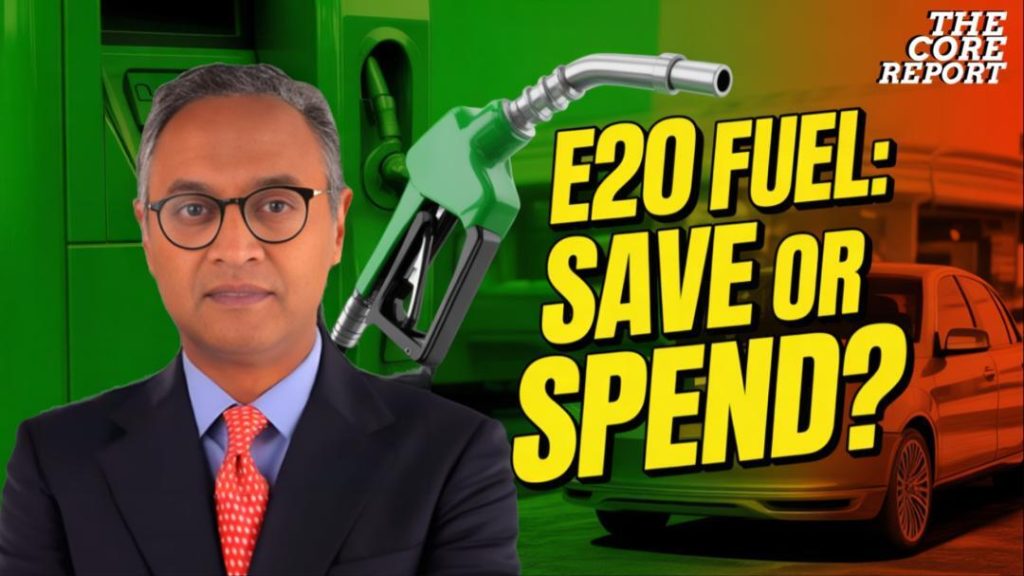
E20 Fuel in India: Benefits, Risks & What Vehicle Owners Must Know
In a bid to reduce carbon emissions, boost energy security, and support farmers, the Indian government has introduced E20, a petrol blend that contains 20% ethanol. The E20 fuel is expected to have a significant impact on the country’s transportation sector, with benefits ranging from improved acceleration to environmental benefits. However, not all vehicle owners are aware of the risks associated with this new fuel, particularly older vehicles that may not be designed to run on E20.
Benefits of E20 Fuel
Studies conducted by the government have reported several benefits of using E20 fuel. One of the most significant advantages is the reduction in carbon emissions. Ethanol, a renewable biofuel, releases 40-50% less carbon dioxide than traditional gasoline. This reduction in emissions can help India meet its global commitment to reduce greenhouse gas emissions and mitigate the impact of climate change.
Another benefit of E20 fuel is its potential to reduce the country’s dependence on imported petroleum products. By blending ethanol with gasoline, India can reduce its reliance on foreign oil and improve energy security. This, in turn, can lead to a more stable economy and reduced trade deficits.
E20 fuel has also been shown to improve acceleration and fuel efficiency. The blend of ethanol and gasoline is said to provide better combustion characteristics, resulting in faster acceleration and improved mileage. This can be particularly beneficial for drivers who rely on their vehicles for daily commutes or long road trips.
Risks of E20 Fuel
While E20 fuel offers several benefits, it also poses some risks, particularly for older vehicles that are not designed to run on this new blend. One of the primary concerns is engine wear and tear. The high percentage of ethanol in E20 fuel can cause engine components to wear out faster, leading to increased maintenance costs and potentially even engine failure.
Another risk associated with E20 fuel is fuel system corrosion. The ethanol content in the fuel can corrode fuel tanks, lines, and other components, leading to leaks and damage. This can be particularly problematic for older vehicles that may not have been designed to withstand the corrosive effects of ethanol.
Finally, E20 fuel can also lead to mileage loss. The blend of ethanol and gasoline can affect fuel efficiency, resulting in lower mileage and increased fuel costs. This can be a significant concern for vehicle owners who rely on their vehicles for daily commutes or long road trips.
What Vehicle Owners Must Know
As the Indian government plans to make E20 fuel mandatory for all new vehicles by 2025, it is essential for vehicle owners to be aware of the risks and benefits associated with this new fuel. Here are a few tips that vehicle owners must know:
- Check your vehicle’s compatibility: Before switching to E20 fuel, check your vehicle’s compatibility with this new blend. If your vehicle is not designed to run on E20 fuel, it may not be the best choice.
- Monitor your vehicle’s performance: Keep an eye on your vehicle’s performance, including its acceleration, mileage, and fuel efficiency. If you notice any significant changes, it may be a sign of engine wear or fuel system corrosion.
- Keep your vehicle well-maintained: Regular maintenance is crucial to ensuring your vehicle runs smoothly and efficiently. Make sure to follow the recommended maintenance schedule and address any issues promptly.
Conclusion
E20 fuel is a significant development in India’s transportation sector, offering several benefits, including reduced carbon emissions, improved acceleration, and energy security. However, it also poses some risks, particularly for older vehicles that are not designed to run on this new blend. By understanding the benefits and risks of E20 fuel, vehicle owners can make informed decisions about their fuel choices and ensure their vehicles continue to run smoothly and efficiently.
News Source:
(Note: The news source is a video news report that provides more information on E20 fuel and its impact on India’s transportation sector.)






